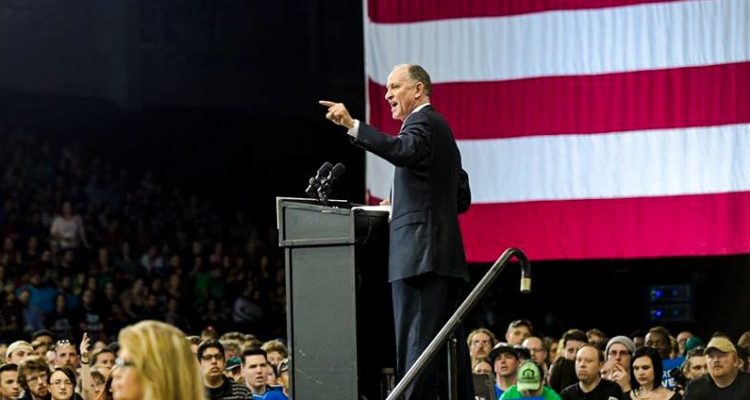He wasn’t going to lie.
It was an honest campaign because Sen. Jeff Kessler spoke the truth about the current state of West Virginia and what is needed to balance the budget and to address the continuing population decline that has shrunk the state’s citizenry to an estimated 1.8 million people.
He ran for governor for a second time, and once again his honesty did not pay dividends. Kessler not only lost, he finished last among the three Democrats in the primary. More than half of the 255,845 registered voters who showed up this past Tuesday supported Jim Justice, a billionaire who spent $2.5 million on his gubernatorial campaign but agreed just once to appear shoulder-to-shoulder with his competitors to discuss policy. Former federal prosecutor Booth Goodwin gathered 25 percent of the votes, and Kessler, well, just 23 percent, or a grand total of 59,551.
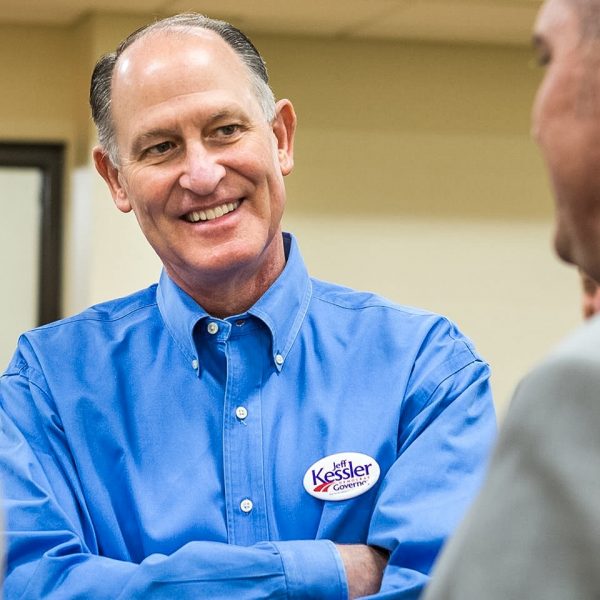
“You’re always disappointed when you lose, but at the end of the day I gave it all I had and still got beat,” Kessler said. “That’s the way it is. I knew when getting into it that it would be difficult because I had to compete against Jim Justice and all of his money. The man spent $2.5 million on his campaign and that was difficult to keep up with.
“But he had very few public appearances where he actually discussed the issues we have in our state. All he said was that he loved jobs and he loved the state of West Virginia,” he said. “I gave it my best shot, and I have no regrets. In the end I get to come home, practice law and make more money, and spend a lot of time with my family, so really, I am the winner in all of this.”
It was a grassroots campaign with a small staff and a minuscule budget compared to his opponents, and he was successful in the counties where people knew Kessler and his work the best. He was first in every county in the Northern Panhandle region except in Hancock, but the ballots in the rest of the Mountain State’s 50 counties favored otherwise.
“I spent about 40 days straight on the road traveling around the state, but (Thursday) I had the chance to sit and watch my 7-year-old play soccer,” Kessler said. “Plus, I got to sit on the couch with my 10-year-old and watch an NBA game, and I had the chance to put my 2-year-old son to bed, so what I have now is not a bad gig at all.
“It’s just time to sit back and relax. I spent the last 19 years trying to take care of the people of West Virginia and all of their children. It’s now time for me to spend time with my own children,” he continued. “And that’s actually what I plan to do.”
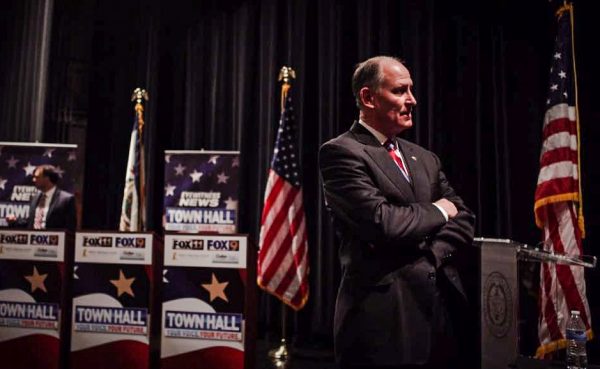
Work to Do
He’s not done yet, though.
Kessler, the minority leader of the West Virginia Senate, will travel to Charleston on Monday to attend Gov. Earl Ray Tomblin’s special session to finalize the state’s budget. Sen. Bill Cole is the president of the state senate and also the GOP candidate in the gubernatorial race. Kessler was the senate president until the Republican Party won majorities in the both chambers of the Legislature nearly two years ago.
During the Legislature’s 60-day regular session Gov. Tomblin and some lawmakers discussed the budget and their ideas concerning increasing revenue generation, but the $270 million budget hole was not seriously addressed, he said, before the session’s completion.
Kessler pushed, but most of the attention centered around the proposed Religious Freedom Restoration Act, raw milk, and transforming West Virginia into a “Right- to-Work” state.
“I wasn’t surprised that the Republican majority made the decision to delay this budget issue until after Election Day because I figured no one would want to deal with the cold, hard truth while going on the campaign trail. They didn’t want to tell the people the truth,” Kessler said. “But the truth is that we’re broke, and we can’t fix what’s broke without money. All the people heard was that there will cuts to this and cuts to that, but no one really identified anything specific.
“It’s easy to walk around and say that we’ll just get rid of all the fat in the budget. Do they want to stop helping all of the fairs and festivals? Do they want to stop supporting the Festival of Lights here at Oglebay? Well, what about the economic impact? Those are tourism dollars,” he continued. “Those fairs and festivals really help our economy, and that’s smart money for the Legislature to spend, in my view. I challenge anyone to show us how making some of these suggested cuts doesn’t cause real pain for the people of our state.”
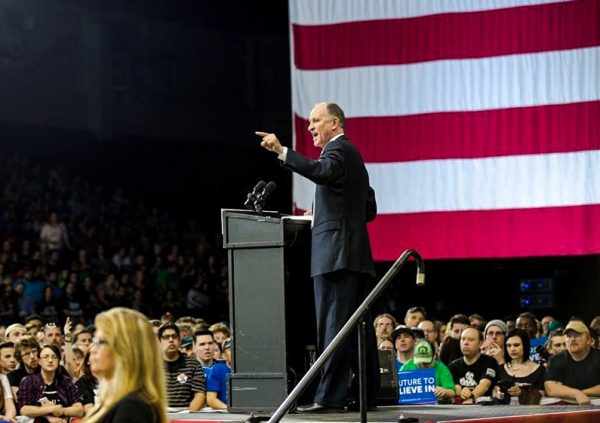
Because he chose to launch his gubernatorial campaign, Kessler could not seek re-election to his senatorial position in the second district. Democrat Lisa Zukoff ran unopposed in the primary, so she will face Republican Mike Maroney in the general election come November. Maroney defeated challenger Ginger Nally by 999 votes on May 10.
So, in January, Kessler will return to “private citizen” status, but he realizes his work is not yet complete.
“Listen, if there are lawmakers who are trying to make cuts that I know will hurt the people of this state, I will raise holy Hell on the Senate floor,” he said. “I’m not very optimistic about how that’s going to end up. During the campaign I was the only telling the people of West Virginia the truth. We’re going to have to increase some taxes. It’s really that simple.
“Everyone else on the campaign trail ran from that reality, but that’s the reality in West Virginia right now, and that’s why when Gov. Tomblin released his special call, and there are three tax bills on it, so at the end of the day there will be increases to raise more revenue because we are $270 million short right now,” Kessler continued. “And people can say what they think people want to hear, but there’s not enough fat in the budget to cut to get us balanced. Cutting the Promise Scholarship, public education, the state police, health departments, higher education — none of that moves us forward.
“But, yes, after this special session and the interim sessions I’ll be home on a full-time basis, and I am very much looking forward to that.”
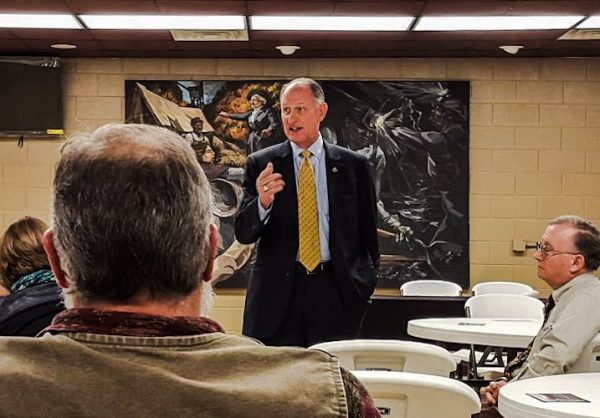
Coal, Natural Gas, and Dollar Bills
The West Virginia Constitution mandates a balanced state budget.
Severance taxes on coal collected by the state have diminished each of the past five years and a lull in the natural gas industry has led to a decreased level of production during the past year. The result is the budget shortfall, and using millions of dollars resting in the Rainy Day Fund is only a portion of the solution, according to Kessler, an attorney who practices law in Moundsville with the firm Berry, Kessler, Crutchfield, Taylor & Gordon.
Gov. Tomblin proposed three tax increases with his call for the special session, including a hike in the cigarette tax, and he suggested eliminating the existing sales tax exemption on telecommunications services. The third proposal involves raising the consumer sales tax up to 1 percent.
During his campaign he did pay attention to the comments made by his two Democratic opponents, and while Goodwin viewed the shortfall as an urgent issue, Justice seemed not to, Kessler insisted.
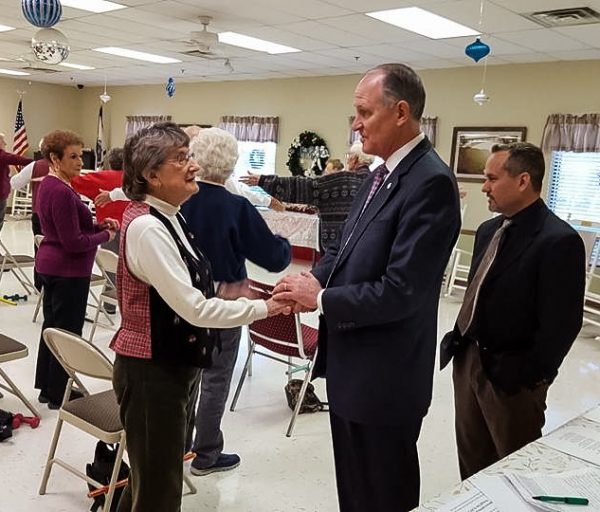
“Jim Justice has said that he thinks the budget has been cut enough, and he’s said that he doesn’t believe we need to increase any taxes either. So, according to what he has said, he would just leave us where we are today, and that’s with a $270 million hole in the budget. I actually heard him say something silly about putting people on ‘Shark Tank’ to figure it all out,” Kessler said. “My jaw dropped when I heard that.
“The last thing I wanted to do on the campaign trail was to tell people we were going to have to raise taxes. No one wants to deliver that message to the voters, but that’s reality right now,” he said. “It’s the truth, and I wasn’t going to lie.”
Kessler visited each of the five regions of West Virginia, and he returned with a full understanding of the issues citizens are facing in each. While development and population increases have been realized in the Eastern Panhandle and in Monongalia County, decline has continued in the southern portion of West Virginia.
“There are good people everywhere in West Virginia, but there are completely different challenges in the different areas of the state,” Kessler reported. “Southern West Virginia is struggling, absolutely struggling. That area has been dominated by one industry but the coal has been mined out in most of those counties. And now there’s just nothing to sustain that area.
“It’s sad, but some candidates have gone there and told those people that if they are elected they will bring coal back. All that did was build up false hopes for something that’s never going to happen,” he said. “But the people fell for it because that’s all they wanted to hear. But that’s just not going to happen, and all anyone has to do is look how the international financial markets have been treating coal. Those people have run away from coal. Coal is the new tobacco. No one wants to invest in coal.”
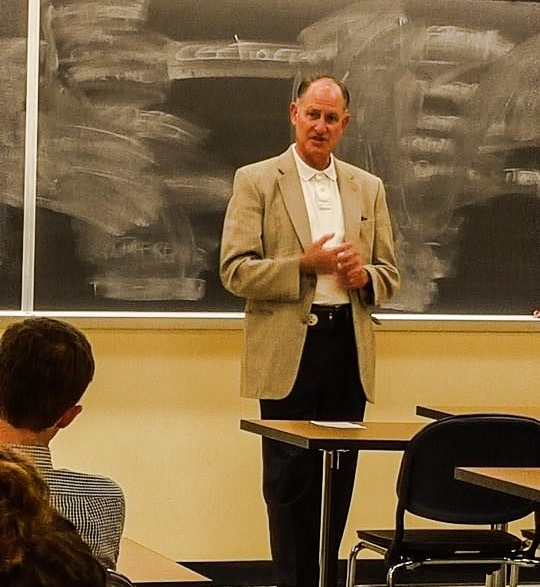
It’s about opportunity, Kessler acknowledged, and to retain the state’s younger citizens, living-wage employment must be available. The state currently leads the nation with the lowest workforce participation (54 percent), and it also paces the country in disability payments. Kessler, a father of five including sons between the ages of 10 and 2, also recognizes the West Virginia workforce trails in education, too.
“We need to do what they have done in Tennessee and what lawmakers tried to do in Kentucky, and that’s make community college more available to our young people in West Virginia,” Kessler explained. “I have been accused of being someone who is a tax-and-spend liberal, but you know what? In Tennessee they will soon have 55 percent of their population who has some sort of education on their resume, and that’s what we need here in West Virginia.
“That’s what brings companies to your state. That’s where economic development takes place. They want a skilled, trained, and education workforce, and that’s what we have to realize because no one is going to come here until that changes,” he continued. “That’s not a liberal thing, and in Tennessee the program is sponsored by the state’s Chamber of Commerce and was adopted by Republicans, and no one can tell me that within a $4 billion budget that we can’t afford $15 million to make this happen in West Virginia.
“Plain and simple, we need to keep our kids, and we need people in Charleston to finally do something about it. It’s not a new issue in West Virginia.”
(Photos provided by Sen. Kessler)


